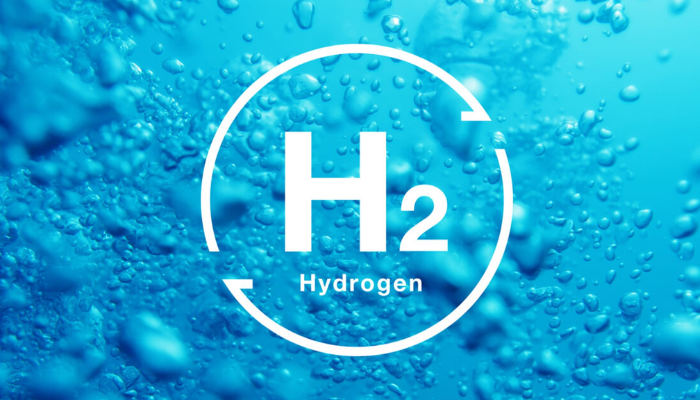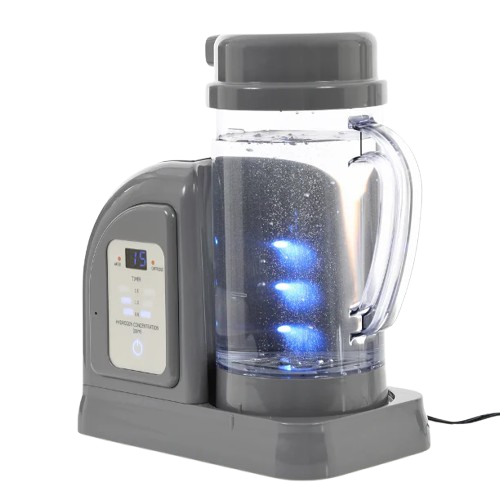Bone health remains a critical concern for millions worldwide, with conditions like osteoporosis and age-related bone loss significantly impacting quality of life. Recent scientific research has identified molecular hydrogen (H₂) as a promising therapeutic agent that may help maintain and improve bone density through multiple mechanisms. This article explores the current evidence supporting hydrogen’s application in bone health and its potential to transform treatment approaches.
Key Bone Health Benefits of Molecular Hydrogen
Prevention of Bone Loss
One of the most consistent findings across studies is hydrogen’s ability to prevent bone loss in various models. Research published in Nature demonstrated that hydrogen-rich water consumption effectively suppressed alveolar bone loss resulting from aging and periodontal inflammation. This protective effect was associated with a reduction in the number of TRAP-positive osteoclasts (bone-resorbing cells) on the alveolar bone surface, suggesting that hydrogen therapy may help maintain bone density by regulating osteoclast activity.
Similarly, a study published in Biomedical Research International found that hydrogen-rich water consumption prevented osteopenia (reduced bone mass) in ovariectomized rats—a well-established model of postmenopausal osteoporosis. The treatment preserved bone mineral content and bone mineral density in both femur and vertebrae, suggesting a systemic protective effect on the skeletal system.
Enhanced Fracture Healing
Beyond preventing bone loss, hydrogen therapy shows promise for accelerating fracture healing, particularly in challenging conditions like osteoporotic fractures. A 2022 study found that hydrogen saline water accelerated fracture healing in ovariectomized rats by suppressing autophagy levels and activating the Keap1-Nrf2 signaling pathway. This effect was particularly notable in the early stages of the fracture healing process, suggesting that hydrogen may help overcome the delayed healing typically observed in osteoporotic fractures.
Preservation of Bone Mechanical Strength
Perhaps most importantly from a functional perspective, hydrogen therapy has been shown to preserve the mechanical strength of bones. In ovariectomized rats, hydrogen-rich water consumption maintained bone mechanical parameters including ultimate load, stiffness, and energy in both femur and vertebrae. This preservation of mechanical strength is crucial for preventing fractures—the most serious clinical consequence of reduced bone density.
Mechanisms Behind Hydrogen’s Bone Benefits
Selective Antioxidant Properties
One of the primary mechanisms through which hydrogen improves bone health is its selective antioxidant activity. Studies have shown that hydrogen can selectively neutralize hydroxyl radicals—the most cytotoxic reactive oxygen species—while preserving beneficial reactive species needed for cellular signaling. This selective approach helps reduce oxidative damage to bone cells without disrupting normal physiological functions.
In a study using ovariectomized rats, hydrogen water treatment significantly abated oxidative stress in femur tissue. Since oxidative stress plays a crucial role in the pathogenesis of osteoporosis by promoting osteoclast differentiation and inhibiting osteoblast function, hydrogen’s antioxidant properties may directly contribute to its bone-protective effects.
Anti-inflammatory Effects
Chronic inflammation contributes significantly to bone loss in various conditions. Hydrogen therapy has been shown to suppress the expression of pro-inflammatory cytokines including IL-6 and TNF-α in bone tissue. By reducing inflammation, hydrogen helps create a more favorable environment for bone formation and maintenance.
A study published in 2013 demonstrated that hydrogen water consumption suppressed IL-6 and TNF-α mRNA expressions in the femur of ovariectomized rats. Since these cytokines play key roles in promoting osteoclast differentiation and activity, their suppression may help prevent excessive bone resorption.
Modulation of Osteoclast Activity
Hydrogen therapy appears to specifically target osteoclast activity without significantly affecting osteoblasts (bone-forming cells) in some models. A 2023 study using zebrafish scales found that hydrogen-rich water prevented osteoclast activation and bone loss in prednisolone-treated fish scales, as verified by both biochemical and histochemical tartrate-resistant alkaline phosphatase assays.
This specific effect on osteoclasts suggests that hydrogen may help maintain bone density by selectively inhibiting bone resorption without necessarily stimulating new bone formation. This mechanism differs from many conventional osteoporosis treatments, which often target both aspects of bone remodeling.
Enhanced Nitric Oxide Bioavailability
Hydrogen therapy has been shown to increase endothelial nitric oxide synthase (eNOS) activity in bone tissue and enhance circulating nitric oxide (NO) levels. NO plays important roles in bone metabolism, including the regulation of osteoblast and osteoclast activities. By enhancing NO bioavailability, hydrogen may help maintain the balance between bone formation and resorption.
In ovariectomized rats, hydrogen water treatment increased femur eNOS activity and enhanced circulating NO levels, potentially contributing to its bone-protective effects.
Practical Applications
Hydrogen-Rich Water Consumption
Consumption of hydrogen-rich water represents the most common and accessible method for hydrogen administration. Studies have used various concentrations of hydrogen-rich water, typically ranging from 1.3 mg/L to higher concentrations, with treatment durations ranging from weeks to months.
The advantage of hydrogen-rich water is its convenience and excellent safety profile, making it suitable for long-term use. This approach may be particularly valuable for preventing age-related bone loss or maintaining bone health in individuals at risk for osteoporosis.
Hydrogen Saline Water
For specific applications like fracture healing, hydrogen saline water has shown promise in experimental models. A 2022 study found that hydrogen saline water accelerated fracture healing in ovariectomized rats, suggesting this approach may be valuable for addressing specific bone health challenges.
Advanced Delivery Systems
Recent research has explored more sophisticated delivery systems for hydrogen therapy in bone health applications. A 2024 study described a palladium-based nanocomposite designed for targeted hydrogen delivery throughout the bone microenvironment. This system, which combined hydrogen therapy with zinc repletion, showed promise for remodeling the osteoporotic microenvironment through immune regulation, osteogenesis promotion, and osteoclast inhibition.
While still in the experimental stage, such advanced delivery systems may eventually provide more targeted and effective approaches for addressing bone health challenges.
Conclusion
The growing body of evidence suggests that molecular hydrogen represents a promising therapeutic approach for maintaining and improving bone health. Its unique properties—including selective antioxidant activity, anti-inflammatory effects, modulation of osteoclast activity, and enhancement of nitric oxide bioavailability—address multiple aspects of bone metabolism simultaneously.
From preventing bone loss and preserving mechanical strength to enhancing fracture healing and potentially remodeling the osteoporotic microenvironment, hydrogen therapy shows remarkable versatility in its bone health applications. As research continues to advance, molecular hydrogen may emerge as an important complementary or alternative approach in bone health management, offering new hope for patients with osteoporosis and other bone-related conditions.
For individuals interested in exploring hydrogen therapy for bone health, consulting with healthcare providers is advisable. The choice of administration method may depend on specific health goals, accessibility, and personal preferences, though hydrogen-rich water currently represents the most accessible approach for most people seeking to incorporate this promising therapy into their bone health regimen.
Citations:
- https://www.nature.com/articles/srep05534
- https://pubmed.ncbi.nlm.nih.gov/22648000/
- https://pmc.ncbi.nlm.nih.gov/articles/PMC9952250/
- https://holyhydrogen.com/the-benefits-of-molecular-hydrogen-water-for-bone-health-a-scientific-study/
- https://www.gdcawolo.com/Industry-news/-hebei-medical-university-hydrogen-rich-water-has-a-potential-effect-on-osteoporosis
- https://pmc.ncbi.nlm.nih.gov/articles/PMC3596646/
- https://spj.science.org/doi/10.34133/research.0540
- https://www.mdpi.com/2076-3921/12/5/988
- https://molecularhydrogeninstitute.org/bones/
- https://www.mdpi.com/2076-3921/12/2/345
- https://onlinelibrary.wiley.com/doi/10.1155/2023/8227382
- https://academic.oup.com/endo/article/146/2/728/2878298
- https://www.osmiowater.co.uk/osmioblog/molecular-hydrogen-studies-On%20Bones.html
- https://journals.lww.com/ebp/fulltext/2022/04000/does_chronic_use_of_h2_blockers_in_adults_cause.13.aspx
- https://www.biocera.com/hydrogen-bones
- https://www.fda.gov/food/nutrition-food-labeling-and-critical-foods/health-claims-letter-denial-alkaline-and-earth-alkaline-citrates-minimizing-risk-osteoporosis
- https://www.mdpi.com/1420-3049/28/23/7785
- https://www.nature.com/articles/s41598-018-33149-9
- https://www.frontiersin.org/journals/endocrinology/articles/10.3389/fendo.2022.962303/full






